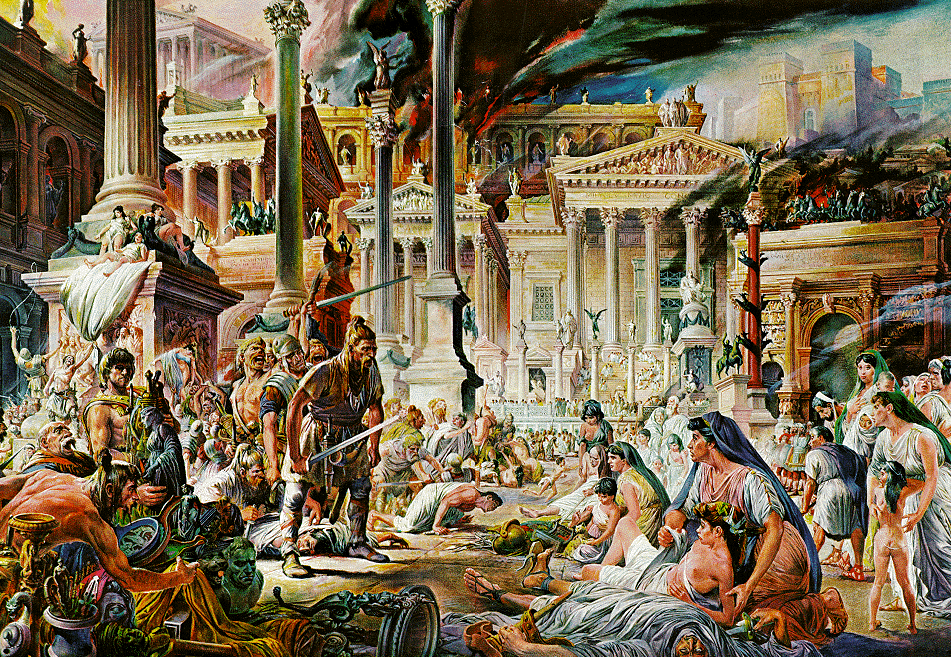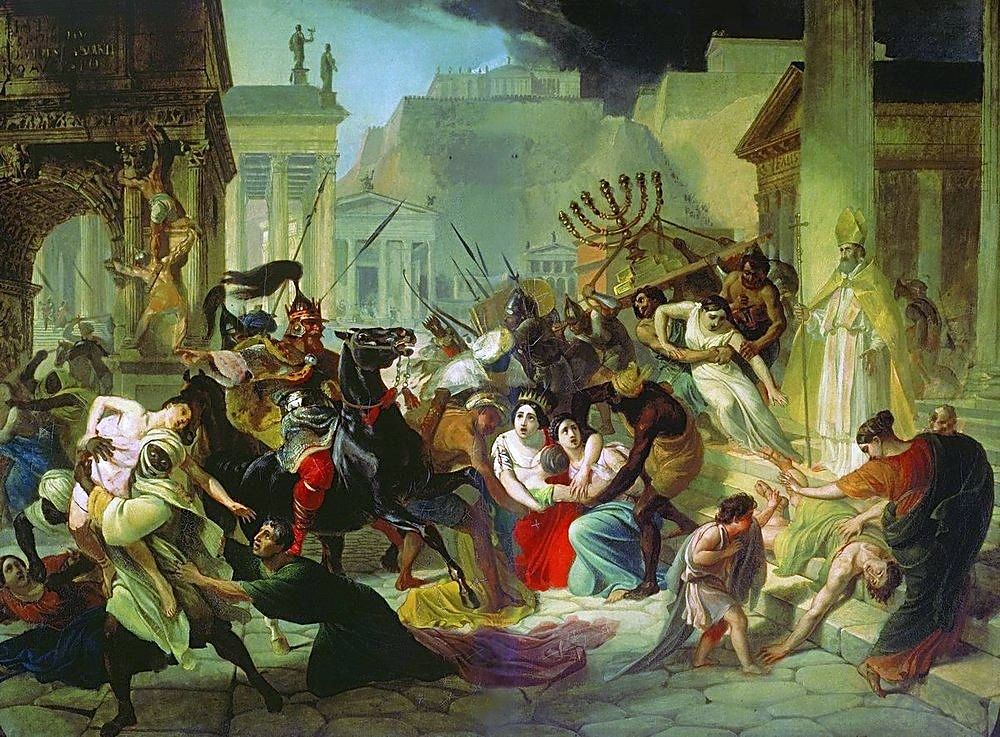The sacks of ancient cities were brutal events. They usually followed an extensive siege, sometimes lasting years, so the population was already starving. Then the besiegers, in miserable shape themselves, finally burst in and took their revenge.
They also took everything that could be moved, killed most of the population, and enslaved the rest. This was as true at Troy as it was at every subsequent event. In 146 BCE, for example, the Romans totally destroyed both Carthage and Corinth, two great cities of the ancient world. Both were eventually refounded as Roman colonies, and those are the ruins we now see. Lucius Mummius, destroyer of Corinth, was mocked by sophisticates because he didn't seem to understand the artistic value of all the statues and other works he looted.
But what was the Sack of Rome? If you think about it, you may have a hazy image of Classical temples looming against a smoky sky as the city burns, and hairy barbarians from up north rampaging among the fat, decadent Romans. Maybe an image like this:

Alaric and his Visigoths, 410. These guys had been besieging the place for quite some time, but it was part of a longer struggle between the Goths and the Emperor Honorius. It took three days, and was pretty much just an organized looting, after which they left. Note that by this point, Rome hadn't been the functional capital for quite some time. The East was ruled from Constantinople, the West from various places--at this point, Ravenna. I remember this picture from National Geographic, particularly the half-naked adolescents being offered up to the Visigoths by their mothers, though their gestures are intended to look protective.
Then came this one

Geiseric and his Vandals, 455. Geisiric ruled North Africa, and launched a major expedition from Carthage (almost exactly 600 years after that city's destruction by Rome) to spend a good two weeks in a systematic looting of the city. No battle, no siege, though there was no doubt violence. The forces were from North Africa, but Vandals were from eastern Germany, and their population mostly descendants of Phoenicians and Italians, plus desert tribes, so I'm not sure about the ethnic composition here. And they came by ship, so I'm not sure about the horse either. The menora was itself presumably looted from Jerusalem by Titus over 300 years earlier. And, given how much there is to steal, I don't know why those two in the background are struggling up the victory arch: to pry out the bronze lettering? Knock a few heads out of the relief?
Rome was already rapidly losing population because the Vandals, by capturing North Africa a couple of decades earlier, had cut off the source of its dole grain, and this comprehensive looting must have accelerated the decline. It was pretty spectacularly depopulated from now until the later Middle Ages.
There were some later events during Justinian's unfortunately successful attempt to reconquer Italy, and the subsequent wars with the invading Lombards, but by that point there was not a lot of movable stuff left. There really is no one Sack marking the end of Roman power, and certainly nothing like that suffered by Carthage and many other victims of Roman expansion.
I think the modern vision of what happened to the Eternal City at the end of Antiquity is actually influenced by a much later Sack of Rome: that of 1527. Charles V's (largely German) troops looted, tortured, raped, and burned the city for months, bringing an end to its Renaissance golden age. It was horrific, and must have seared itself into the imaginations of Europeans. When they thought of sacks of the city by Germanic barbarian tribes, they projected the events of the dramatic recent one back, though in reality, those had been relatively orderly procedures by comparison. Recent history influences our perception of deeper history much more than we usually realize.



